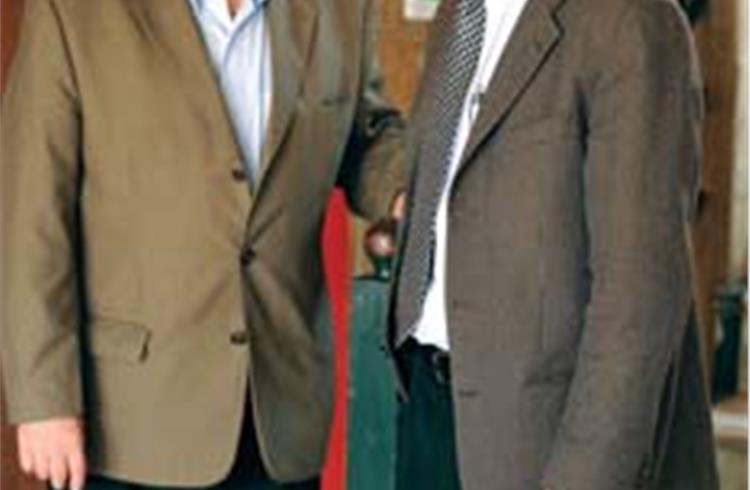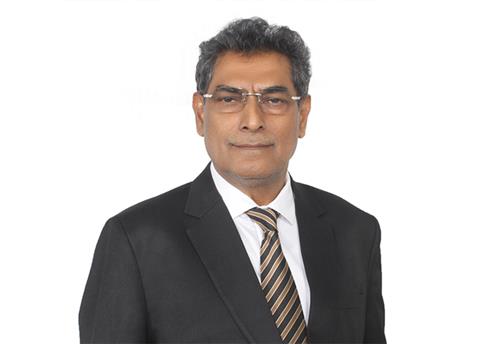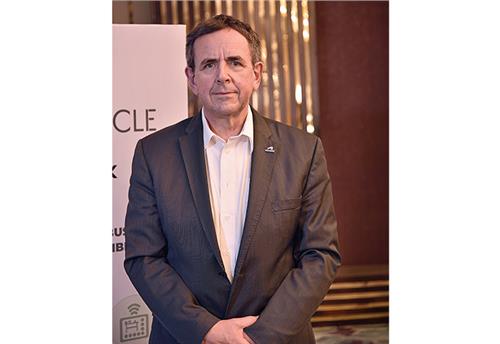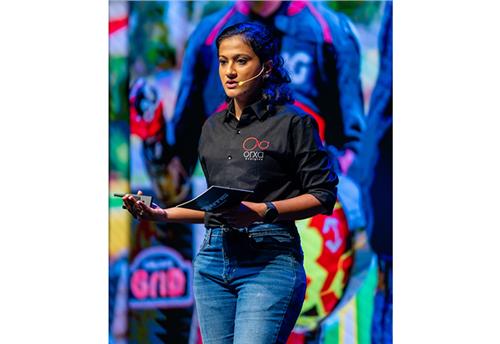Mark Schneider & Larry Dowers
ArvinMeritor’s Commercial Vehicle Systems (CVS) division sees exciting opportunities in India in the off-highway sector. Schneider, director of this relatively unknown business unit, tells us about it. CVS India managing director Dowers joins the discussion.
What does ArvinMeritor’s off-highway business presently consist of?
Schneider: ArvinMeritor, though it’s not commonly known, is actually a major manufacturer of axles for off-highway, at present specifically through a joint venture in China called Xuzhou Meritor Axle Co. The reason I’m here in India is not only that we’re looking to expand our reach from China into India but we’re also expanding our reach to the rest of the world as well.
Does ArvinMeritor do this business on its own anywhere else?
Dowers: No. We are just launching it into a business on our own as well.
I imagine you will look at manufacturing opportunities here?
Schneider: Absolutely.
Would that mean manufacturing opportunities in those other places, or would you use India and China to supply the rest of the world?
Schneider: I think it’s a mixture of what makes business sense. Clearly we’re trying to leverage the cost structures of each market and of each economy. Of course you also have to take into account freight, lead times, and those sorts of things.We’re building our strategy on four major segments. The first is being able to service on a global basis. The second is lead times. The third, as I already mentioned, is cost-competitiveness — like being able to manufacture in Asia. And the fourth segment is innovation.And then for each market that we are going into – for instance, as we develop our plan for India – those are the four core segments we’re building upon. In the execution plan we’ll have those four segments all taken into account.
How big a business is this likely to become compared to your 'traditional' on-highway business?
Dowers: We haven’t dimensioned it yet. One of the reasons Mark is actually here is to build a framework of what it will be for India. It’s just that the off-highway equipment business in India is still small relative to the rest of the world, so we do feel there is a lot of potential but one of the things that we’ll be doing over the next couple of months is the actual dimensioning of various segments, various products and components, and putting our strategies together aligned with that.
On a worldwide basis, where do you see this fitting? How big will it be in your axle business?
Schneider: A very important segment.Dowers: Yes, it’s a very important segment. And if you look at the other areas of business that are relatively mature – obviously North America and Europe are mature markets, – it’s in the emerging markets, where infrastructure is being built, where there’s going to be expectation of growth, that we can take these products and further expand both our platform and as well probably give more resilience to the company in these new markets.
Historically Dana has been very strong in these heavy off-highway axles. Are you going to be competing against them in the same categories?
Dowers: Again, that’s part of our mapping that we have to go through. I would say that’s part of what we’re looking at. Right now Dana is a major player in this segment.
What percentage of ArvinMeritor’s business do axles account for?
Dowers: The entire CVS business is about $4.2 billion, the light vehicle systems (LVS) business about $2.2 billion. So two-thirds of the company is in commercial vehicle products. Now that includes our off-highway business. And we break down our off-highway business between the truck space – construction and off-highway – and what we call specialty. Specialty includes military axles, as well as axles for other construction and off-highway machinery. These together are a very strong part of our portfolio, of the order of 20 percent.
But axles as a whole?
Dowers: We don’t break it out that way; we categorise our business by customer group. And we sell complete systems. If a customer is looking for a drive head with certain characteristics with brakes, we’ll provide that solution. If he wants suspensions as part of that, we’ll do it with suspensions. If he wants us to integrate it into some other part of his drivetrain we’ll do that too. But that’s one of the beauties of our breadth of products that we have in the CV side — we can bring that into the off-highway segment. So we can do drivelines if they require it for an off-highway vehicle too.
Is that something you would look at doing in India, or just axles?
Schneider: Absolutely. Wherever we can move upstream on the machine, we’re going to take the opportunity. But as Larry said, we’ll be trying to take advantage of the assets that we have in place right now. For instance, as we said, we’re a solutions provider. The axles that are made in Xuzhou have brakes on them, they’re able to go directly to the customer. They go right underneath the machine, they lift the driveline up, and they’re ready to run. So wherever possible, we look at opportunities to do this. We’re still going through the process of putting together and dimensioning exactly which markets and which segments we’re going to go after specifically here in India.
On the on-highway truck side you have axles, but you have yet to get into driveshafts. But in this market you have the opportunity to go in as a complete driveline supplier, not start with axles and then move up…
Schneider: The beauty about off-highway is that it’s such a diverse market, and it’s a very diverse application. So you can’t broad-brush like you would with the truck side of things.Dowers: What you’re going to do with a grader, or a backhoe, or a front-end loader — it depends on what the customer need is, what his technology is, and what he’s looking for. We are going to approach this in a very flexible way because we bring our whole bandwidth to him. So we aren’t pre-fixed on entry in one way.
Has China been your only market for these products till now?
Dowers: Yes.
Would this be a business that you take even to Europe and the US, and South America perhaps?
Dowers: These are more saturated markets. Again we’re still in the forming of our strategy and today our interest is really exploring Asia–Pacific because that’s where the emerging growth is. That’s really where our attention is.Schneider: Again it’s a global strategy. The markets are different, the applications are different, and to be honest the axles are different. But we’re taking a global view to the marketplace. So, as we’ve indicated, some of the applications in India are different from some of the applications that will be in the US or Europe. So we’ll be developing the product lines specific to the needs of the market.
What does it involve technically, a business like this? You’ve got all the experience with truck axles. What’s different about this from the technical perspective?
Schneider: Well, there’s no doubt you have more parts. At the end of the day, in most applications, it’s planetary axles. But the traction devices you can have are diverse. In many applications for a truck it’s an open differential. In off-highway it can be a limited slip differential, or it can be a differential lock, it can be a hydraulic differential lock, it can also be a no-spin. So again it all depends on the application.You’ve got a lot more parts obviously to develop, but at the end of the day we have an enormous amount of experience within the company and a wonderful legacy of being able to develop axles, not just for trucks but also for military applications and specialty vehicles like fire trucks and motorhomes. Really, off-highway is just another dimension of what’s already a great product base. We have some very talented engineers who have experience developing the axles for the off-highway markets.
Are these engineers part of the joint venture, or are they ArvinMeritor engineers?
Schneider: They’re both.
When you look at this market, will you have engineers here working on products?
Dowers: That’s correct.Schneider: Absolutely.
If it comes to manufacturing, will you use the existing setup you have here?
Dowers: In the products where that fits. If we find ourselves getting into different product areas, we’ll raise that with our partners and see what’s the best way forward. We’re not going to defocus our attention on the areas where we are in at the moment.
But you have the facility…
Dowers: If you’re talking about the drive head, absolutely. Gear cutting, absolutely.
Has your business in China been affected by the economic downturn?
Schneider: There’s no doubt there have been segments that have been negatively affected, but then there are also segments that have been positively impacted as a result of the stimulus packages, especially when you start getting into some of the major infrastructure projects. It bodes very well for a lot of off-highway equipment — material handling cranes and that sort of thing. So on the other side of things, we’ve got some softening in the construction markets — front-end loaders and compactors have been affected negatively. So it all depends on which market and where we see the stimulus packages going.
The biggest-selling construction machine in India is the backhoe loader. Is this something you have a product for?
Schneider: As Larry said, we’re still developing product plans. But we’re looking at the entire market. We’re leaving no stone unturned. We’re looking at everything from compaction equipment to light construction to heavy construction. That’s really what’s necessary. When you’re forming a strategy and looking for an entry point into the market, you don’t want to overlook anything. We’re looking at everything. And then we’ll decide which products and which markets to go after.
You’ve had this business since in China 1996, but you’re just looking at India now. What’s the imperative now?
Dowers: I guess there has been discussion in the company about this part of our strategy for about a year. So we’ve been developing this over a period of time. It’s a matter of the sequence of how we wanted to look at things. To be honest, the commercial vehicle market was really moving so fast that we didn’t have the space to entertain bringing in this segment until we saw this downturn and now it’s opened up this space that we can actually start looking at these things.
Do you have competitors in the entire range of products that you are looking at for this sector?
Dowers: I think we have the widest bandwidth in what we bring, as we do in the truck space.
RELATED ARTICLES
BRANDED CONTENT: 'We aspire to be among the leading sensors and electro-mechanical products manufacturer'
P. Parthasarathy, Founder & Managing Director, Rotary Electronics Pvt Ltd shares the company's commitment and vision to ...
‘Big opportunity for startups lies in products in India’: Detlev Reicheneder
As electrification levels the playing field, the focus on tech and R&D to bring innovative products is the mantra for st...
'I hope my journey makes people say — I can do this too'
Ranjita Ravi, Co-founder of Orxa Energies — the maker of Mantis e-bikes — shares the challenges of building a startup an...





 By Autocar Pro News Desk
By Autocar Pro News Desk
 10 Jun 2009
10 Jun 2009
 1806 Views
1806 Views









